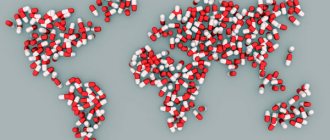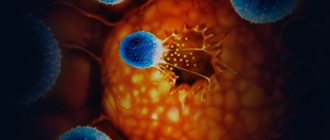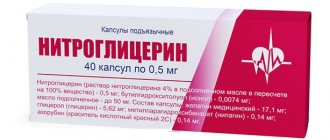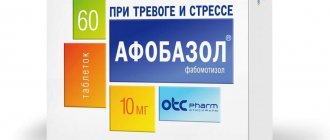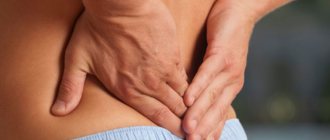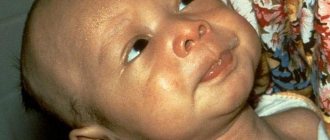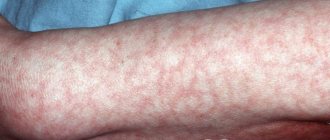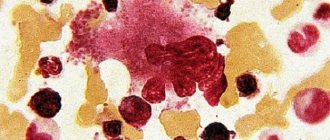Decreased appetite, heaviness in the stomach, depression, skin rashes - all this may indicate that a person has intoxication of the body due to constipation. Symptoms appear due to poisoning by toxic substances that are retained in the gastrointestinal tract when the process of defecation is disrupted - constipation. The problem occurs in both adults and children, and untimely treatment of this disease sometimes leads to serious complications for the body.
Intoxication due to constipation
Causes
Provoking factors of body poisoning against the background of constipation are:
- poor diet with a lack of plant fiber and water;
- low physical activity of a person;
- frequent use of laxatives;
- prolonged travel;
- long-term intentional retention of feces in the intestines;
- diseases of the rectum (hemorrhoids and anal fissures);
- disruptions in intestinal motility;
- pathologies that have developed in the pelvic floor area;
- hormonal disorders;
- spinal cord damage.
Intoxication of the body with feces also often occurs in pregnant women. The fetus strongly compresses parts of the mother's intestines, which provokes a delay in defecation and concomitant poisoning of the entire body.
Fecal retention may be a consequence of a person taking certain medications. Substances such as nicotine and lead can cause constipation. Frequent consumption of products with pronounced tanning properties provokes fecal retention and further poisoning.
Types of intoxications for constipation
Depending on the reasons for the development of poisoning of the body with feces, the following types of intoxication are distinguished:
- Nutritional. Associated with oversaturation of the body with certain foods with a small amount of fiber (rice, potatoes, white bread).
- Neurogenic. They occur against the background of mental disorders (schizophrenia, depression). Neuritis and encephalitis are also provocateurs.
- Reflex. Associated with existing pathologies of the gastrointestinal tract and genitourinary system. Their exacerbation in humans may be accompanied by fecal intoxication.
- Hypodynamic. Associated with low human physical activity. Because of this, intestinal motility slows down. Often develops in older people.
- Inflammatory. They occur against the background of the development of colitis and enteritis in humans.
- Toxic. Intoxication occurs from poisoning the body with mercury, lead or nicotine.
- Medication. Associated with frequent use of diuretics, non-steroidal drugs or antidepressants.
- Proctogenic. They occur against the background of the development of hemorrhoids.
- Mechanical. Associated with the presence of tumor formations or adhesions in the intestine.
- Endocrine. They occur against the background of diabetes mellitus, insufficiency of the reproductive system organs, and pregnancy. In the latter case, intoxication due to constipation is often temporary.
Symptoms
The presence of constipation in a person is indicated by the absence of stool for two days. At first, intoxication does not yet develop. A person is worried about bloating and flatulence. Constipation that lasts more than three days begins to manifest as loss of appetite, abdominal pain and fatigue. The last sign indicates the beginning of the development of intoxication.
Fecal poisoning can be accompanied by various symptoms. They depend on the type of intoxication. In its acute form, the following symptoms are noted:
- headaches, often occurring in the temples;
- drowsiness;
- constant nausea;
- vomit;
- pain in muscles and joints;
- increased body temperature;
- weakness and malaise.
Signs of intoxication of the body with constipation, which occurs in a chronic form, are less pronounced. But with prolonged fecal poisoning, a person experiences accompanying symptoms in the form of:
- constant aversion to food;
- bad breath and yellow coating on the tongue;
- frequent insomnia;
- nervousness;
- hair fragility and excessive hair loss;
- cloudy urine;
- skin rashes;
- swelling throughout the body;
- heartburn;
- systematic attacks of headaches;
- brittle nails;
- weight loss or gain.
Symptoms of intoxication with chronic constipation most affect the skin. In a sick person it becomes flaky. Rashes often appear on the temporal and frontal areas of the head. Long-term feces poisoning leads to constant exacerbations of chronic dermatitis.
In children, signs of intoxication of the body with constipation are more pronounced. The child is constantly irritated and whiny. He is worried about constant flatulence. Pustular rashes often appear on the skin.
A concomitant symptom of fecal intoxication in a teenager is acne. Children also experience anemia and weight loss, even leading to anorexia. A typical manifestation of fecal poisoning due to constipation in children is a constant feeling of pressure in the anus.
Symptoms
The clinical picture is characterized by the following:
- Evacuation occurs no more than 3 times a week. For severe symptoms, 1 time.
- After visiting the toilet, a person experiences a feeling of incomplete emptying.
- The stool becomes dry, moves with difficulty, and you have to strain during stool.
- There is quite severe pain in the lower abdomen.
- There is a coating on the tongue.
- An unpleasant aroma comes from the mouth.
- Depression and anxiety develop.
- Appetite disappears, resulting in sudden weight loss.
- The patient complains of cephalgia and insomnia, and there are dark circles under the eyes.
- Nausea and sometimes vomiting are possible.
- The abdomen is swollen - this is due to the fermentation of stagnant feces.
- If intoxication is a consequence of an infectious disease, the temperature rises significantly.
- Often such a manifestation as heartburn.
Treatment methods
During therapy, primary measures should be aimed at eliminating intestinal dysfunction. The patient is prescribed a diet. It includes foods enriched with fiber (raw fruits and vegetables), rye bread with bran, mineral water, buckwheat porridge, and fermented milk products. These products speed up the release of feces from the intestines.
Important! People with constipation accompanied by severe flatulence should completely avoid legumes, sorrel and cabbage from the menu. Grape and apple juices are also contraindicated. The diet should include prunes and dried fruit puree.
Fecal intoxication with severe intestinal peristalsis requires patients to be prescribed antispastic drugs (No-shpa, Papazol, Papaverine).
During constipation and intoxication, you need to drink plenty of fluids. You should drink about two liters of water per day. Warm mineral water is recommended for constipation.
In case of intestinal intoxication, frequent consumption of food is necessary. There should be at least five meals per day. The breaks between them cannot be too long.
For constipation in adults, laxatives are prescribed with caution. These drugs are effective only in the initial stages of constipation. Subsequently, a person develops a persistent addiction to them, and they cease to act properly.
Effective remedies for constipation include:
- Vaseline oil;
- preparations with senna extract;
- Bisacodyl;
- medications based on picosulfate;
- magnesium sulfate, which increases the concentration of fluid in the intestines;
- lactulose-based medications;
- Macrogol.
Combination agents may be prescribed. They include plant substances (Regulax, Agiolax). Microenemas are also used. One of these drugs is Microlax.
To eliminate intoxication of the body, intestinal lavage can be performed. Enterosorbents (Smecta and Enterosgel) accelerate the elimination of toxic components. Diuretics may also be prescribed additionally.
In some cases, intoxication of the body due to constipation requires oxygen therapy. In severe cases of fecal poisoning, blood transfusions may be prescribed.
First aid and therapy
If fecal poisoning has developed, all actions should be aimed at stopping the intoxication process and restoring normal bowel movements:
- the victim needs to be given plenty of water (but in no case with carbonated drinks);
- give suppositories, suppositories, tablets or oil drops with a laxative effect (castor oil helps well, but it must be used carefully so as not to provoke the opposite effect - severe diarrhea);
- give an enema;
- relieve intoxication with sorbents (activated carbon, Smecta, Enterosgel, etc.);
- an antihistamine for allergies that arise due to intoxication;
- Decoctions of chamomile or dandelion as options from traditional medicine will help well against constipation.
Preventive actions
To prevent the occurrence of intoxication due to constipation, it is necessary to eat properly. You should eat foods with fiber more often. It is recommended to limit the consumption of foods that slow down the process of emptying the intestines of feces (rice, white bread, strong teas, blueberries, red wine). It is important to observe the frequency of meals, eat often and in small portions.
You should regularly drink 1.5 to 2 liters of water. It is worth accustoming yourself to regular bowel movements. It is advisable to do this in the morning. Physical activity is important. Physical activity will help to avoid stagnation in the pelvic area.
It is necessary to undergo diagnostics for the presence of pathologies of the large intestine. Timely treatment of any gastrointestinal diseases will help avoid problems with bowel movements in the future.
Intoxication is a likely consequence of constipation in humans. The condition manifests itself with specific symptoms and requires immediate treatment due to the high risk of complications in the functioning of all organs. Compliance with a diet, regular diagnostics for the presence of infections in the intestines and sufficient physical activity are the basic ways to prevent constipation and accompanying intoxication.
What are such conditions?
Constipation is classified as follows:
- spicy;
- chronic.
- In addition, pathologies in peristalsis are divided into the following types:
- primary - this type includes pathologies that have developed due to congenital or acquired anatomical abnormalities of the colon;
- secondary - this type of peristalsis disorders develops as a result of various injuries, mechanical effects, for example, due to prolonged sitting, or any diseases;
- idiopathic - with this type of disease, disturbances in peristalsis occur due to weakened intestinal motility, without the presence of any obvious prerequisites for this in the form of diseases, injuries or anomalies.
Constipation after poisoning can develop according to any of these types. Diarrhea accompanying intestinal disorders often injures the intestines, especially if their consistency consists not only of watery contents, but also of solid inclusions.
Often, disturbances in peristalsis that appear after an intestinal disorder occur in an alternating pattern - constipation and only diarrhea, and there is no normal stool. This development of the disease does not indicate problems with motor skills, but an imbalance in the flora, dysbacteriosis, the presence of helminthic infestation, or other similar pathogenesis. The cause of this course of peristalsis disorder can also be polyps in the rectum.
Acute constipation is a condition in which there is no bowel movement, despite the urge to do so, for more than 5 days. If a disturbance in peristalsis is caused by poisoning, then doctors talk about the occurrence of an acute type of intestinal disturbance after 6-7 days.
The chronic type of intestinal dysfunction is not a consequence of food poisoning. But this state of the body significantly increases the risk of developing constipation after treatment of intoxication.
There is another type of classification of this disease. Lack of stool may be:
- Alimentary – arising due to a lack of fluids inside the body or adherence to a strict diet, for example, this type of intestinal dysfunction develops during Lent.
- Mechanical - appearing due to various damage to both the muscle walls and the mucous membrane.
- Dyskinetic – formed as a result of disruptions in the innervation of the intestine and other types of disturbances in its functionality.
Food poisoning can provoke every type of disturbance in peristalsis. Therefore, the choice of treatment should be approached taking into account your own feelings.
